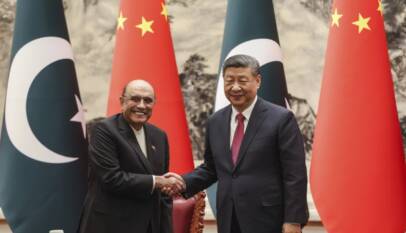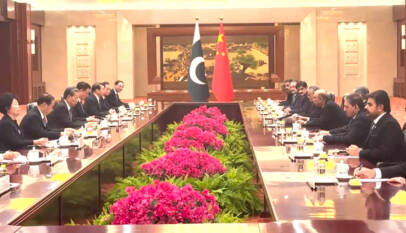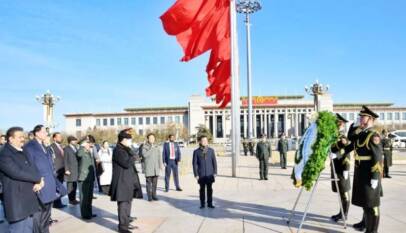Chinese SMEs observing patterns to enter into Joint Ventures with local firms
Khursheed Nizam, organizer of the 2nd International Consumer Product Fair at the Karachi Expo Centre said Chinese Small and Medium Enterprises (SMEs) are eager to transfer their production units to Pakistan. He said it also worked for the incumbent government's import substitution and increased exports centric policy. He stated that Exhibitors at the Karachi Expo Center are carefully examining demand and pattern to enter into joint ventures with Pakistani businessmen and launch their products. The increased cost of production including $1000 labour cost per month is pushing Chinese investors to look for other regional countries such as Pakistan where labour wage is $200 per month, Khursheed Nizam added. In these joint ventures, 97% of employees would be Pakistani and 3% Chinese who will oversee the projects and companies. Organizer Nizam described that Pakistan could become Halal Kitchen in the world through the Chinese help in preservation and packaging technologies.
KARACHI: Chinese small and medium enterprises (SMEs) are willing to relocate to Pakistan, which will support the government’s programme of import substitution and increase in exports.
“Exhibitors are not here (at the Expo Centre) to sell their products rather they just want to exhibit and observe the pattern of demand so that they could form joint ventures with local businessmen and introduce products which have high demand,” said Khursheed Nizam, the organiser of the 2nd International Consumer Product Fair at the Karachi Expo Centre.
He pointed out that Pakistan was a cheap country with a large population, which attracted businessmen from other nations. However, he stressed, the focus was on China because Pakistan had the largest trade deficit with it and in addition to that, the Chinese government directed the SMEs to relocate to Pakistan.
“In China, the cost of production has increased manifold compared to its neighbours due to which Chinese businessmen are relocating the less sophisticated industries to other countries,” said Nizam.
According to him, the labour cost in China is around $1,000 per month while in Pakistan it is nearly $200.
“After establishing joint ventures, these new companies will employ 97% of the workforce from Pakistan whereas 3% will be Chinese, who will comprise project managers and those who will oversee the business,” he said. “Cheap labour means cheap products, which will help steer import substitution in Pakistan.”
He revealed that in the next phase these joint ventures would start exporting merchandise to the Middle East, Central Asia and other nearby countries.
“This is a win-win situation for all the parties,” remarked Nizam. “Pakistan can become a manufacturing hub if it strives enough.”
China had noted that Pakistan was an agricultural economy, hence, it exported raw material instead of value-added goods, he said.
Rather than exporting corn, the country needed to export cornflakes and in this mission, China was willing to lend support by providing technology, he added.
Although China has 6,000 factories producing Halal food, it lacks credibility as people do not consider China capable enough to produce Halal food. “Keeping this in view, Pakistan can become a Halal kitchen of the world,” he said.
“There are 1.6 billion Muslims around the world and Pakistan has the potential to cater to the demand from many of them,” he said. “China intends to help us in this area by providing packaging and preservation technology as the Chinese are good at them.”
Pakistan loses 50% of its fruit and vegetable produce due to outdated farm practices. Chinese preservation techniques could help save the complete produce, which could be exported, the exhibition organiser said.
President Zardari, Xi Jinping vow deeper cooperation in high-level talks in Beijing
China’s President Xi Jinping held talks with visiting Pakistani counterpart Asif Ali…











